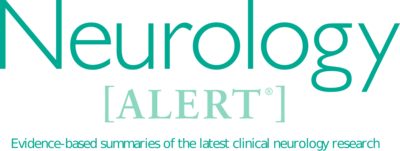
Neurology Alert – November 1, 2025
November 1, 2025
View Issues
-
Acupuncture to Treat Low Back Pain in Older Adults
A multisite, three-arm, parallel-group randomized clinical trial of older adults in the United States with chronic low back pain found improvement in both pain and disability with the addition of acupuncture treatment compared to usual medical care alone.
-
Proton Craniospinal Irradiation for Leptomeningeal Metastasis
Proton craniospinal irradiation (pCSI) demonstrated better overall survival and progression-free survival outcomes compared to involved-field radiotherapy (IFRT) for the treatment of leptomeningeal metastases in patients with non-small cell lung cancer and breast cancer.
-
Oligoclonal Bands: What Utility Do They Have Beyond Multiple Sclerosis?
This retrospective study found that while oligoclonal bands (OCB) remain a highly sensitive and specific marker for multiple sclerosis (MS), they have limited diagnostic utility for other autoimmune central nervous system disorders. The findings underscore that OCB testing should be reserved for suspected MS and interpreted cautiously outside the MS context.
-
Neurofilament Light Chain: Differentiating bvFTD from Psychiatric Disorders
Behavioral-variant frontotemporal dementia (bvFTD) can be difficult to distinguish from a primary mood disorder at the early stages of disease. Biological markers, such as serum or cerebrospinal fluid neurofilament light chain, can help to make a distinction between the disorders, but the test carries a high false-negative rate.
-
Detection of Atrial Fibrillation in Cryptogenic Stroke
The ANTARCTICA study is a pooled meta-analysis from multiple prospective studies of patients with ischemic stroke of varying etiologies, where loop monitoring was performed for atrial fibrillation detection. The groups were divided into cryptogenic stroke/transient ischemic attack or non-cryptogenic stroke/non-stroke. Both groups demonstrated an unadjusted rate of atrial fibrillation of about 30%.